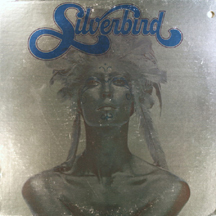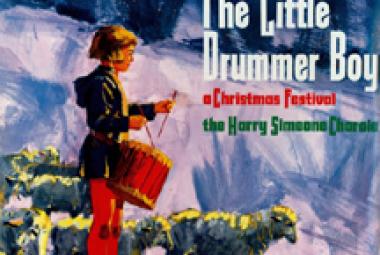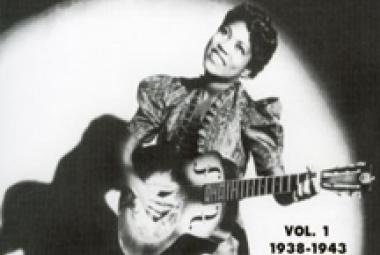
Silverbird is a Native American musical ensemble consisting mainly of members of the Ortiz / Silverbird family that has been around for more than 40 years. The above album, Broken Treaties was released in 1972 or 1973 on Capitol Records and is (according to Gil Silverbird) the first album by a Native American band to be released on a major record label. A more obscure album by the same band called Getting Together could have been their first (it was released in 1972) on CBS Records and Columbia Records, though this album might have been released mainly in Europe. A third album, Silverbird was released in 1973, on Bravo Records.
* * *
The above is a photograph of the back of Silverbird’s second album Broken Treaties, but the text is unreadable. My copy of Broken Treaties went through Hurricane Katrina, so all I have is the disk. If not for a blog at www.weapon-shaped.com, I might not have gotten all of the bandmembers’ names on the album: Reuben Ortiz, Joerey Ortiz, Perry Ortiz, Steven Coronado, Gilbert Ortiz, Ginger Coronado (now also a Coronado, like Steven), and Mark Ortiz.
Vic Ortiz also contributes to the Broken Treaties album, at least as a songwriter; how he is related to the others is unclear. While he is almost certainly not the boxer Victor Ortiz – Ortiz also appeared earlier this year on Dancing with the Stars – Vic Ortiz is still listed on innumerable Internet sites with the boxer’s nickname: Vicious Vic Ortiz.
* * *
The music on Broken Treaties is basically soft rock; much of the music has lush strings, so Silverbird is often classified as a disco band, even though 1971-1973 is early in the disco era to say the least. However, there are a variety of musical styles and several lead vocalists; and overall, the music has a definite tribal feel. Their voices merge beautifully, providing fine background vocals; on “Would You” and “Poor Boy”, the lead vocals are several singers in harmony.
The opening tracks on each side – “Custer’s Last Stand” and the title song, “Broken Treaties” – deal effectively (and far less provocatively than Buffy Sainte-Marie did on It’s My Way!) with the basics regarding Native Americans; besides the themes that are obvious from the song titles, the songs talk about the slaughter of the buffalo herds and the current poverty among Native Americans. The mood of these two songs is appropriately somber, though the majority of the songs on Broken Treaties are upbeat.
Although Custer’s Last Stand was one of the few Indian victories, it is probably the best known battle involving Native Americans and has been for decades. I recently saw a movie called They Died with Their Boots On – this catchphrase has been popular for years – that portrays George Armstrong Custer heroically; the 1941 movie was apparently highly fictionalized but notes that Custer graduated last in his class from the U. S. Military Academy at West Point. I had learned that about Custer in the “Final Jeopardy” question on a Jeopardy! show a long time ago.
While the other tracks on the album do not directly address Native American issues, there is some social commentary, notably on “Poor Boy”. The final song on the album, “Violet” was singled out for praise by the piece on the album on the www.weapon-shaped.com website. My own favorites on the album are “Broken Treaties”, “Friends”, “At the Party” and “Sonny”.
(August 2013)















